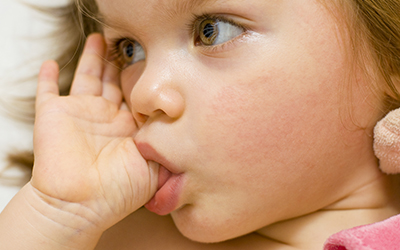Posted on Dec 25, 2023
File ID 7869361 | © Myadria | Dreamstime.com

The first time your baby sucked their thumb or finger, you probably aww-ed at their antics. Sure, they looked cute with their gummy smile and wet fingers stuffed in their mouth, but too much of this can lead to dental problems in the future.
The good news is that your baby will most likely stop this habit by the time they turn 4. Observing the intensity and frequency of thumb-sucking when your child enters the toddler stage is essential. If they simply rest their thumb in their mouth, there’s no need to worry, but if the sucking is aggressive, you need to intervene.
Make your child aware of their thumb-sucking habit. Sometimes, they may not even realize they are doing it. Gently point it out and discuss it openly, emphasizing the importance of stopping. You can make it a fun lesson by involving their favorite superhero. For example, “Does Superman suck his thumb?”
Discuss strategies with your kid to break the habit. This will give them a sense of control, which you will take away if you start confronting them with ultimatums.
Distraction is the key to breaking this habit. Since children suck their thumb to calm themselves, give them a blanket or soft toy they can hold on to. This will redirect their behavior to a less damaging form of comfort.
Encourage positive behavior by offering rewards when your kid refrains from thumb-sucking. This could be extra playtime, a small treat.
If the thumb-sucking persists and affects your kid’s oral development, seek advice from a kids’ dentist. They will provide guidance tailored to the specific situation.
Remember, breaking this habit will not work unless your kid does it willingly. So, start small and see what helps them get there.